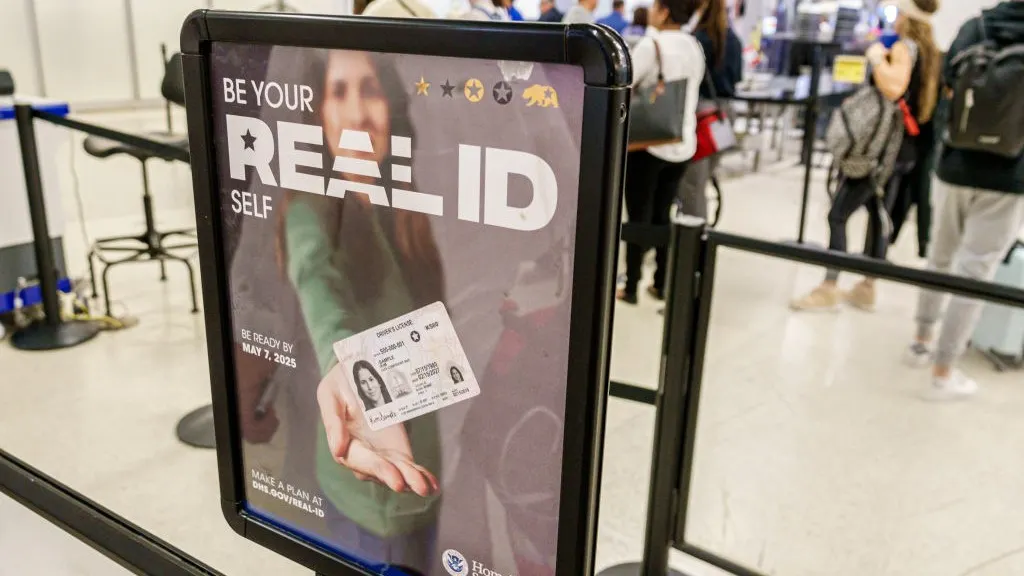New Jersey residents are increasingly frustrated with the challenges encountered in obtaining a REAL ID, particularly as the deadline for compliance with federal mandates approaches. Lawmakers from both parties are calling for improvements, especially concerning the state Motor Vehicle Commission’s (MVC) handling of appointment scheduling. Reports indicate that many individuals are unable to secure timely appointments, prompting concerns from officials about the implications for travel plans during the busy summer months.
| Article Subheadings |
|---|
| 1) The REAL ID Act explained |
| 2) Appointment scheduling difficulties in New Jersey |
| 3) Lawmakers’ responses to public frustration |
| 4) Compliance rates and public misconceptions |
| 5) Future plans for improving the process |
The REAL ID Act explained
The REAL ID Act, enacted in 2005 under President George W. Bush, requires states to implement stricter rules governing the issuance of driver’s licenses and identification cards. The primary aim of the legislation is to enhance national security by ensuring that individuals provide sufficient documentation confirming their identity before being issued a state-issued ID. As a result, driver’s licenses must include a star symbol, indicating that the holder has presented additional documentation. The federal requirement will become increasingly stringent as many travelers will need to present a REAL ID or a valid U.S. passport to board domestic flights starting from a designated deadline.
Appointment scheduling difficulties in New Jersey
As the deadline for REAL ID compliance looms closer, New Jersey is reportedly lagging in its ability to facilitate timely appointments for its residents. The New Jersey Motor Vehicle Commission (MVC) has faced backlash over its appointment system, which many citizens claim is inefficient and cumbersome. Residents have expressed their frustrations after waking up early to secure appointments online, only to find that slots disappear almost instantaneously. Reports from various sources indicate that some individuals are resorting to traveling over an hour just to find a location with available appointments. This level of inconvenience has led many to cry out for immediate reforms to how the MVC manages these appointments.
Lawmakers’ responses to public frustration
Bipartisan lawmakers, including Assemblymember Nancy Muñoz from Union, have voiced strong objections regarding the MVC’s preparedness for the surge in demand. In her remarks, Muñoz emphasized that residents should not have to face such hurdles in securing their IDs. “There’s no excuse for the Motor Vehicle Commission to be this unprepared,” she stated. Lou Greenwald, the Assembly Majority Leader, echoed these sentiments, arguing that other states, like Pennsylvania, have adopted more streamlined processes that allow residents to apply online. He noted this shift would alleviate much of the current pressure on the MVC and make the service more accessible for New Jerseyans.
Compliance rates and public misconceptions
Despite New Jersey’s status as compliant with federal standards, the state incongruently ranks last among its peers in terms of the actual number of residents who have obtained REAL IDs. According to a CBS News survey, the Garden State’s compliance rate is alarmingly low compared to other states. This statistic has raised questions about the effectiveness of the state’s public outreach and education efforts regarding the REAL ID process. Many residents may not fully understand the implications surrounding REAL IDs, particularly the penalties for failing to obtain one ahead of the deadline. Consequently, this lack of awareness has contributed to the current backlog at MVC facilities.
Future plans for improving the process
In light of the public outcry, lawmakers are advocating for significant changes to improve the existing system. Lou Greenwald plans to introduce legislation that would allow online applications for REAL IDs, a measure that could streamline the process and reduce wait times significantly. Implementing such a change would enable residents to obtain their requested ID swiftly and effectively, thereby minimizing appointment-related stress. The MVC has responded to the situation by implementing “REAL ID Thursdays,” where applications for REAL IDs are prioritized. Employees are also required to work extended hours to accommodate the influx of residents seeking assistance. However, many lawmakers contend that these measures are insufficient given the urgency of the situation.
| No. | Key Points |
|---|---|
| 1 | New Jersey’s Motor Vehicle Commission is facing criticism for appointment scheduling difficulties concerning REAL ID applications. |
| 2 | Lawmakers are calling for immediate reforms to streamline the appointment process and increase accessibility. |
| 3 | New Jersey ranks last in the nation for the percentage of residents who have obtained REAL IDs. |
| 4 | Proposed legislation could facilitate online applications for REAL IDs, easing the burden on residents. |
| 5 | The MVC has taken steps to improve service, including designated days for processing REAL ID applications. |
Summary
The situation regarding REAL ID applications in New Jersey presents a significant challenge as lawmakers and residents express growing frustrations over appointment scheduling issues. Despite being legally compliant, the state lags in percentage terms when it comes to residents obtaining REAL IDs. With travel plans on the horizon, proposed legislative changes aim to mitigate these issues and streamline the application process, which many believe is long overdue. The commitment of lawmakers to address this crisis is evident, but effective implementation remains to be seen.
Frequently Asked Questions
Question: What is a REAL ID?
A REAL ID is a federally compliant identification card or driver’s license that is required for certain activities like boarding domestic flights. It demonstrates that the individual has provided additional identification documentation.
Question: Why is New Jersey struggling with REAL ID appointments?
New Jersey has encountered challenges with appointment scheduling due to high demand and a relatively inefficient system compared to some neighboring states.
Question: What changes are lawmakers proposing to improve the process for obtaining a REAL ID?
Lawmakers are advocating for the implementation of online applications for REAL IDs, which would streamline the process and reduce wait times for residents seeking appointments.


